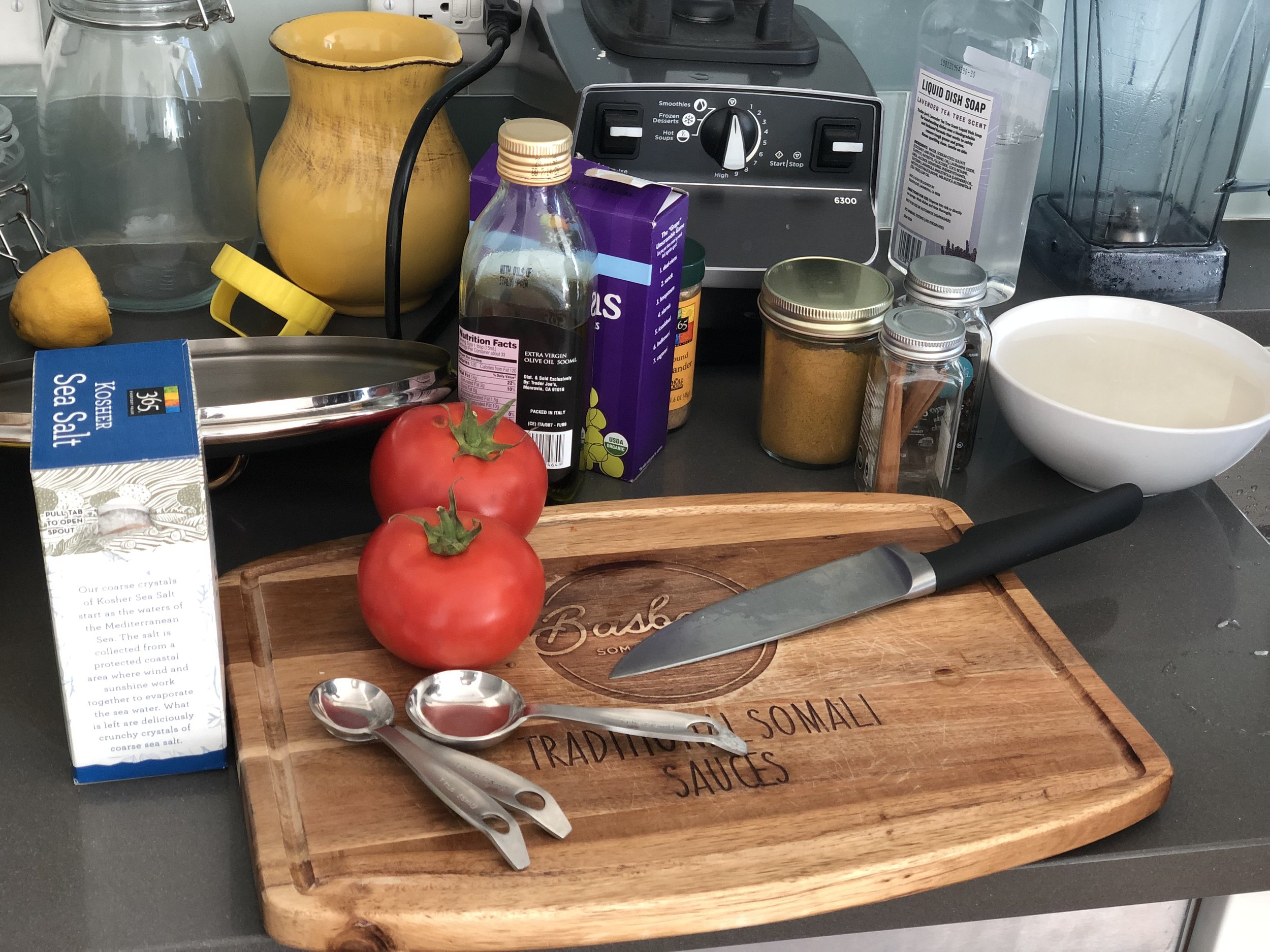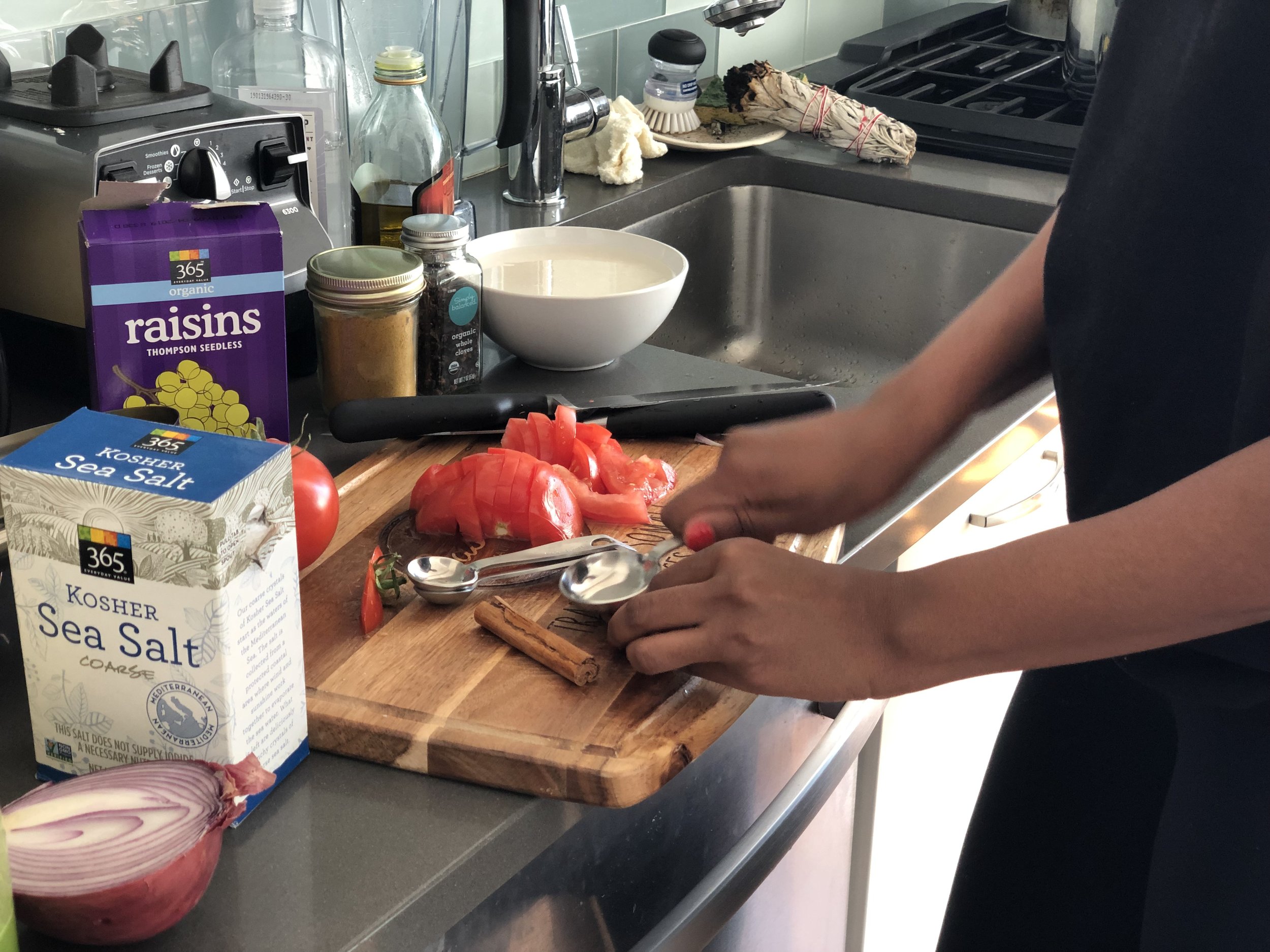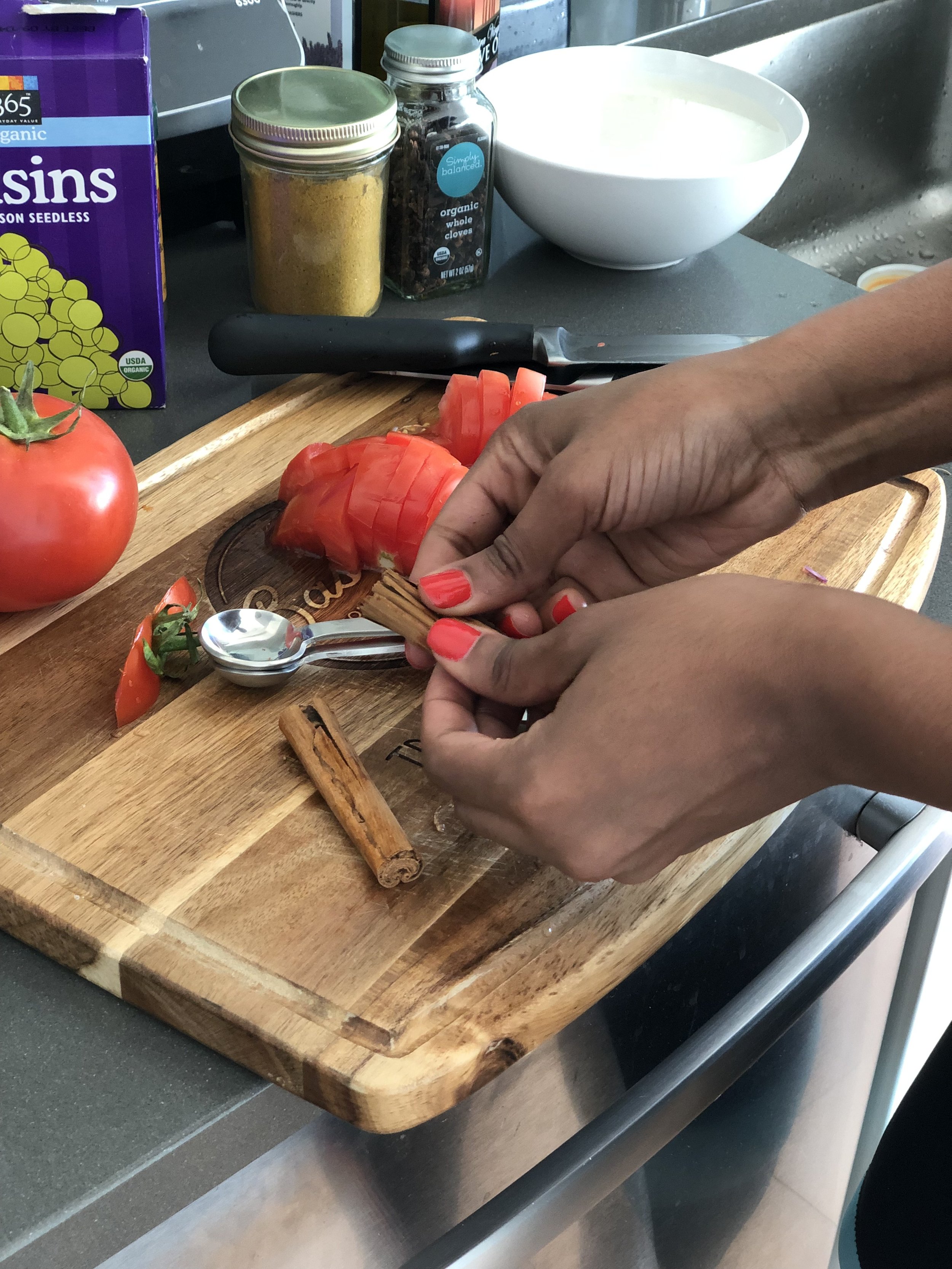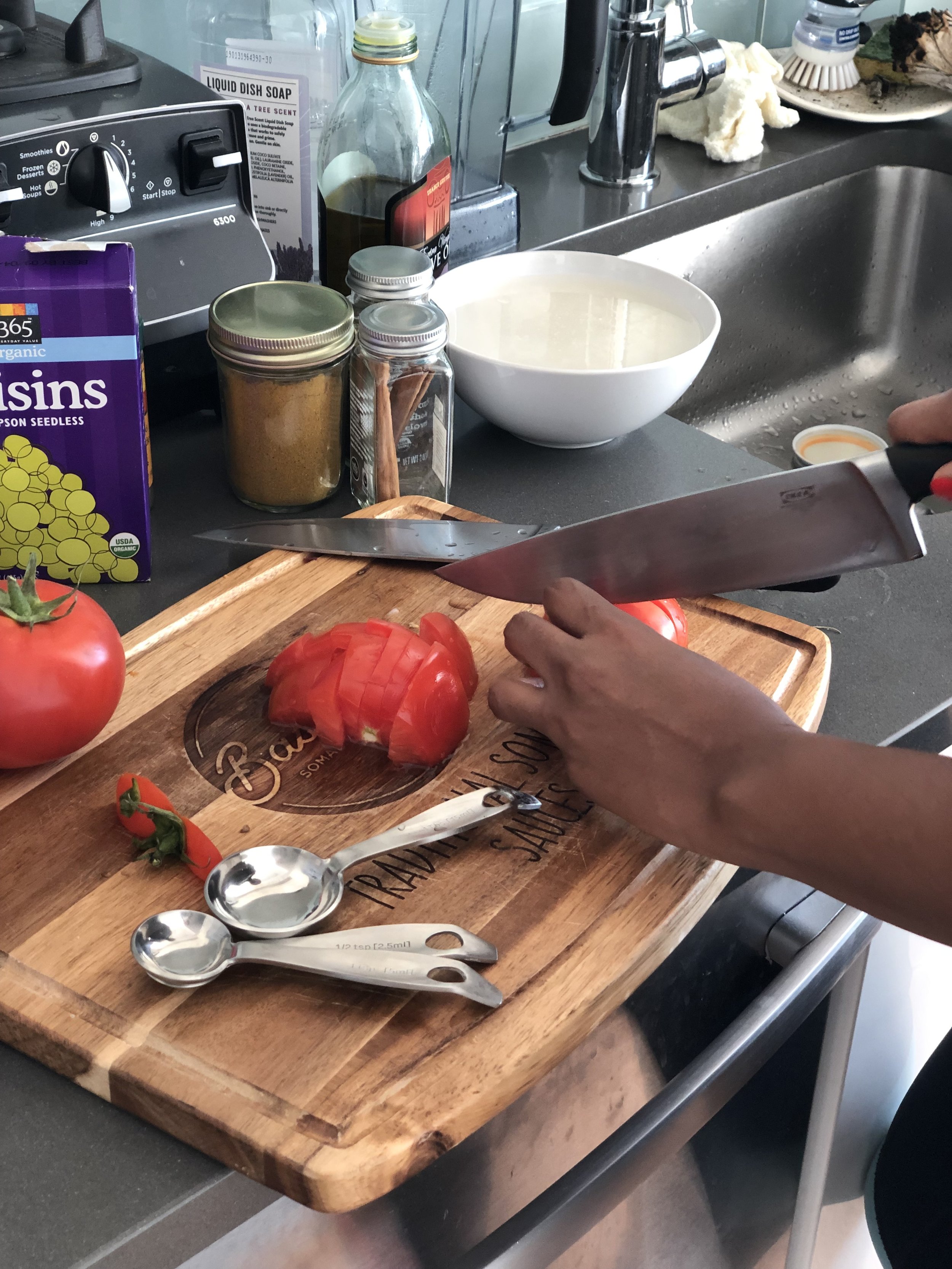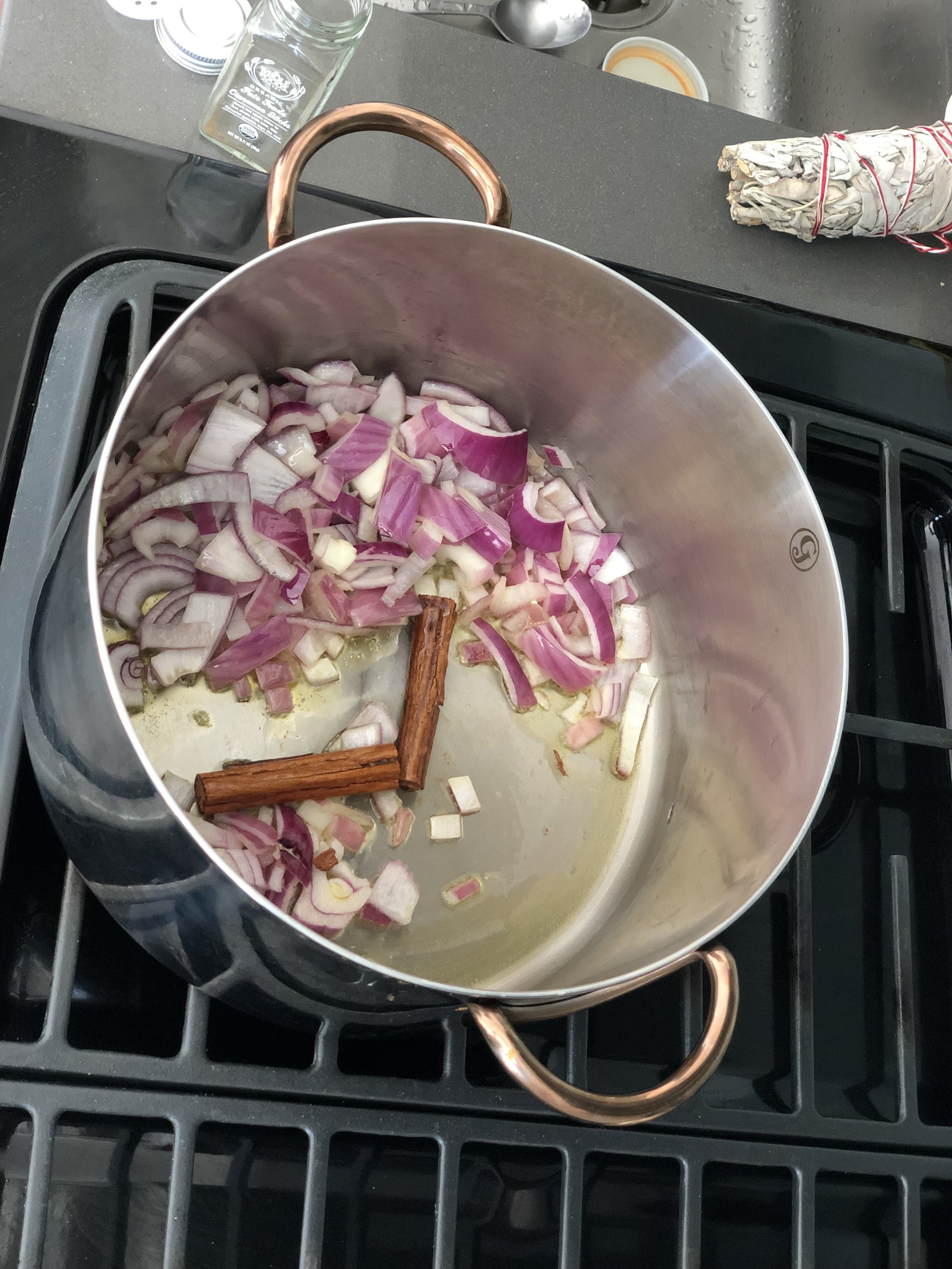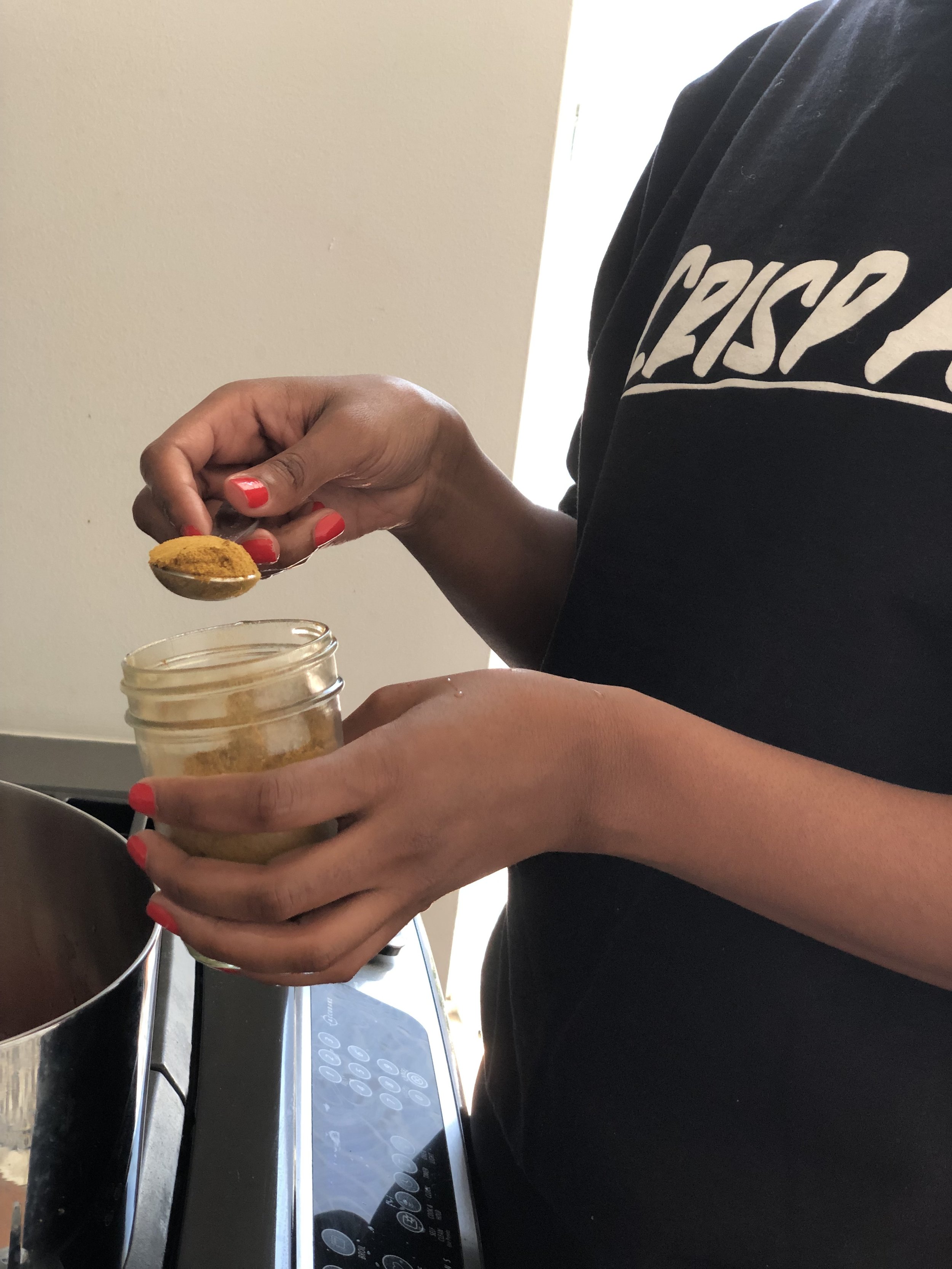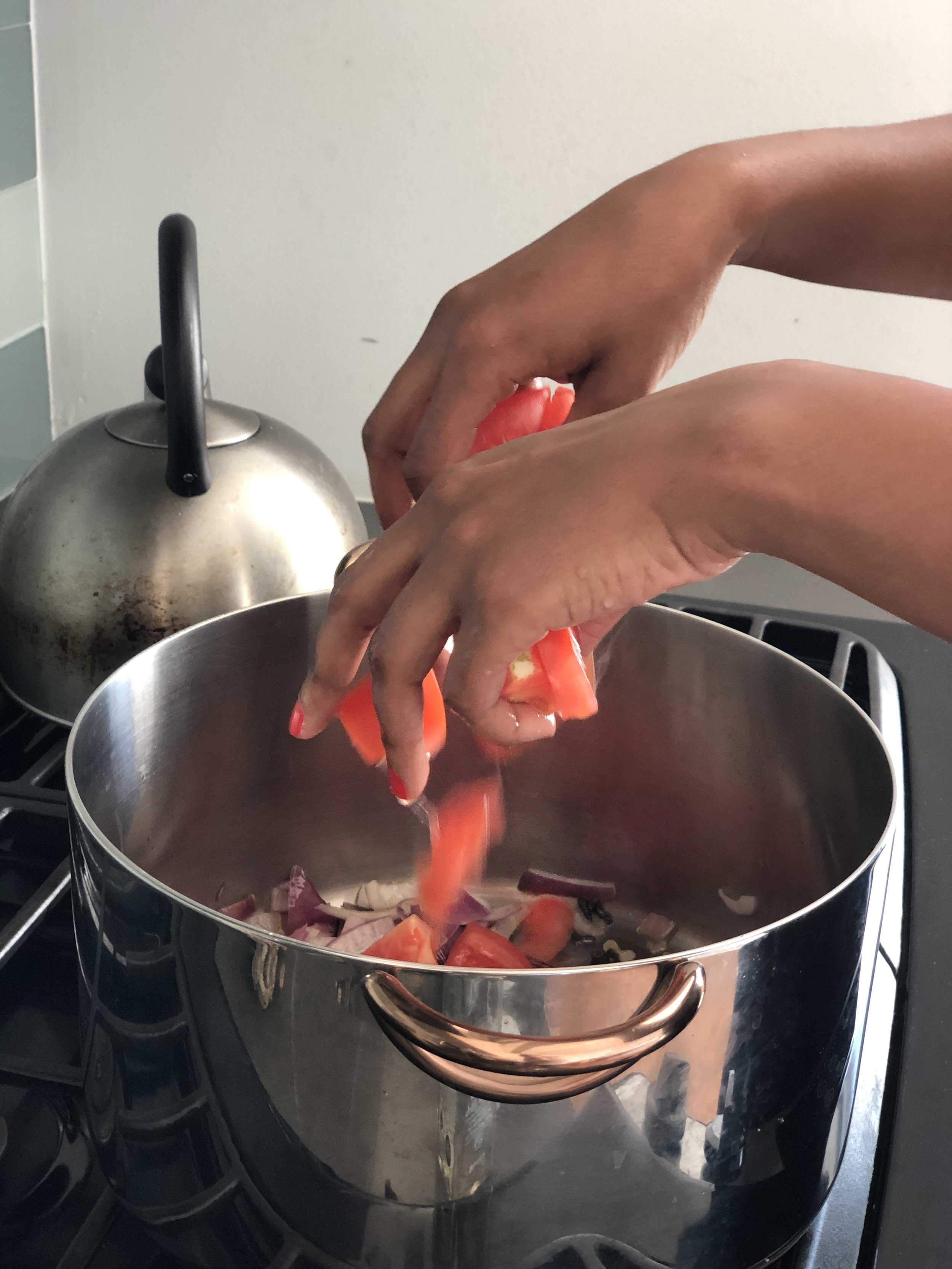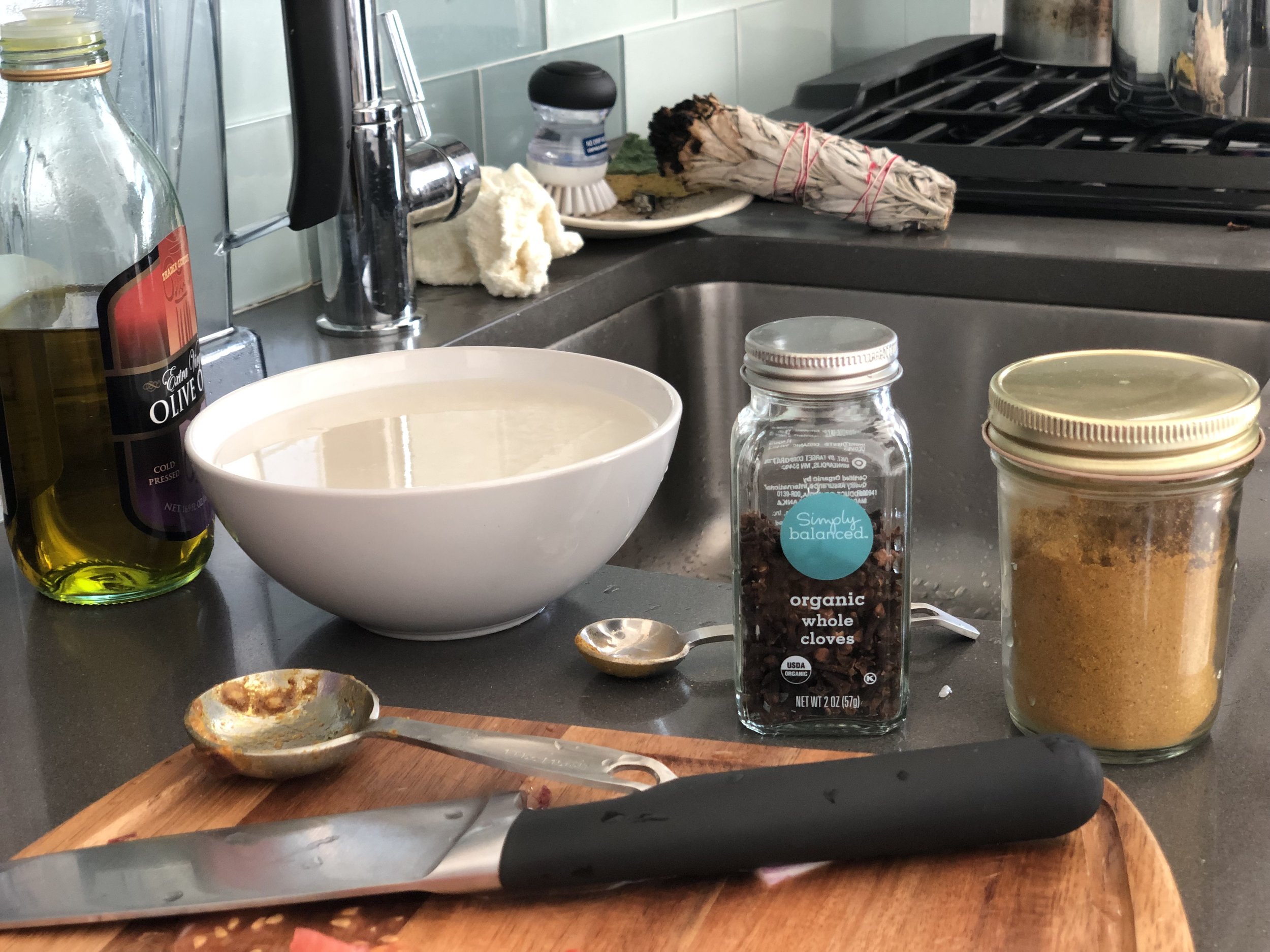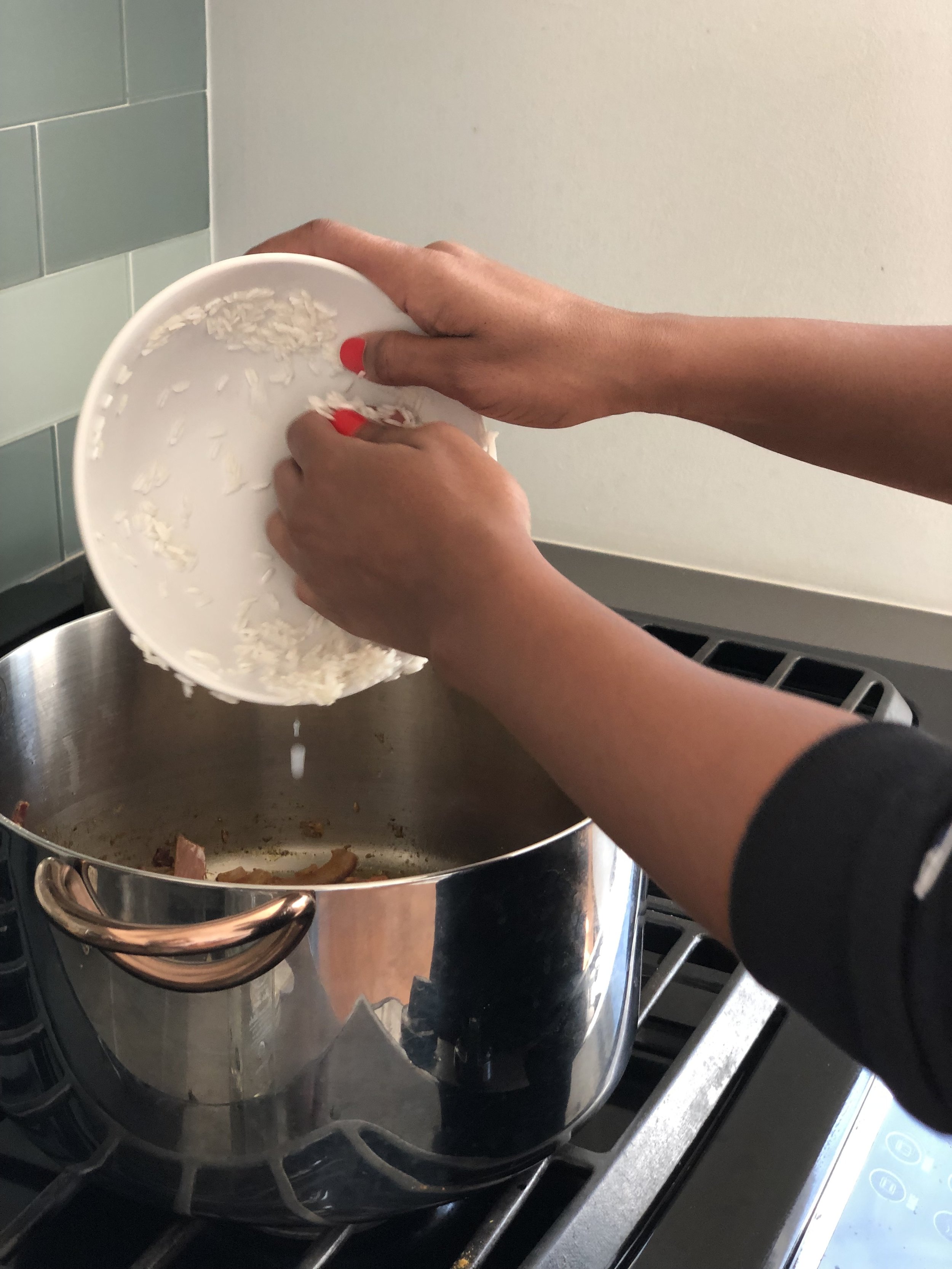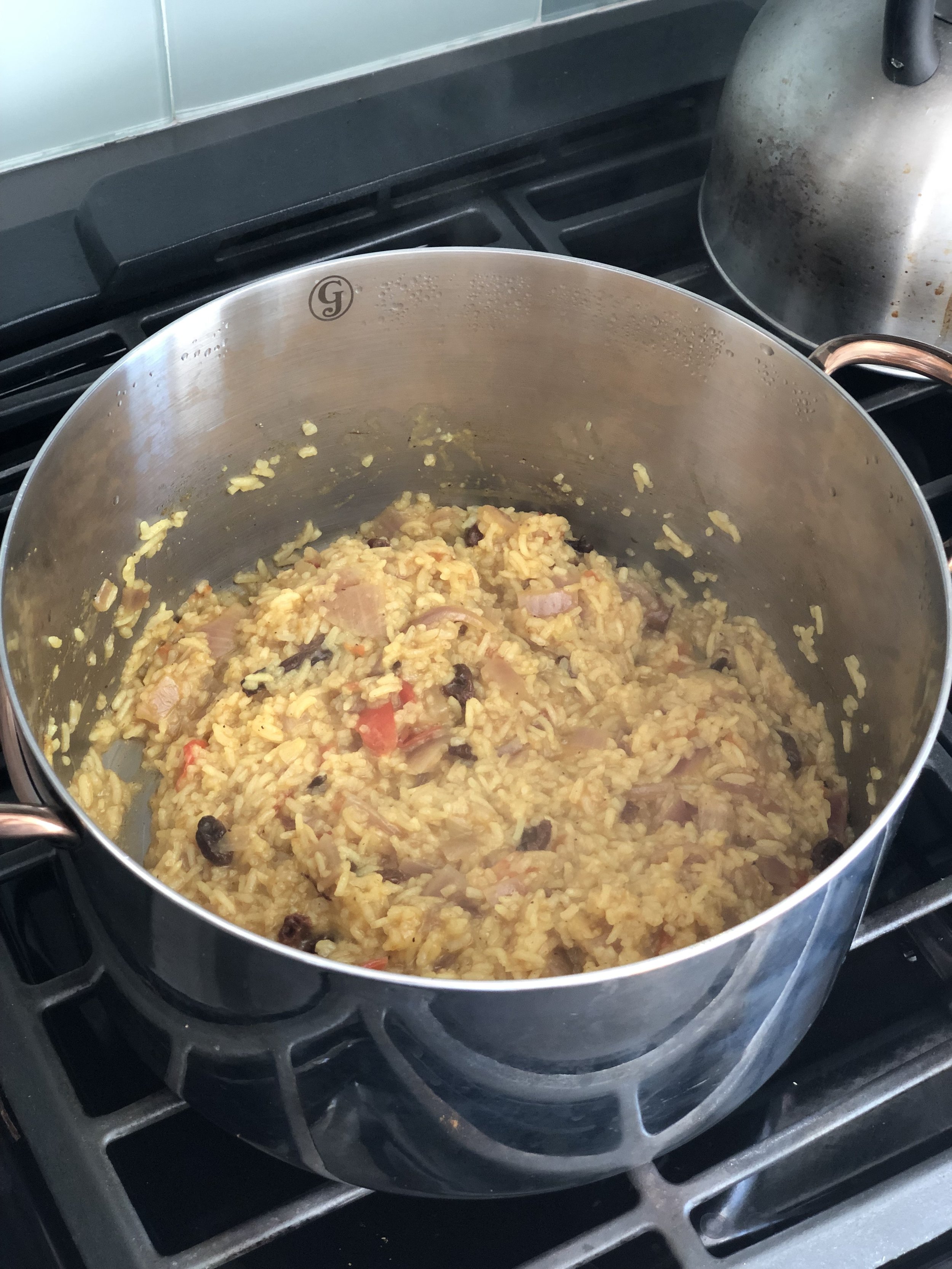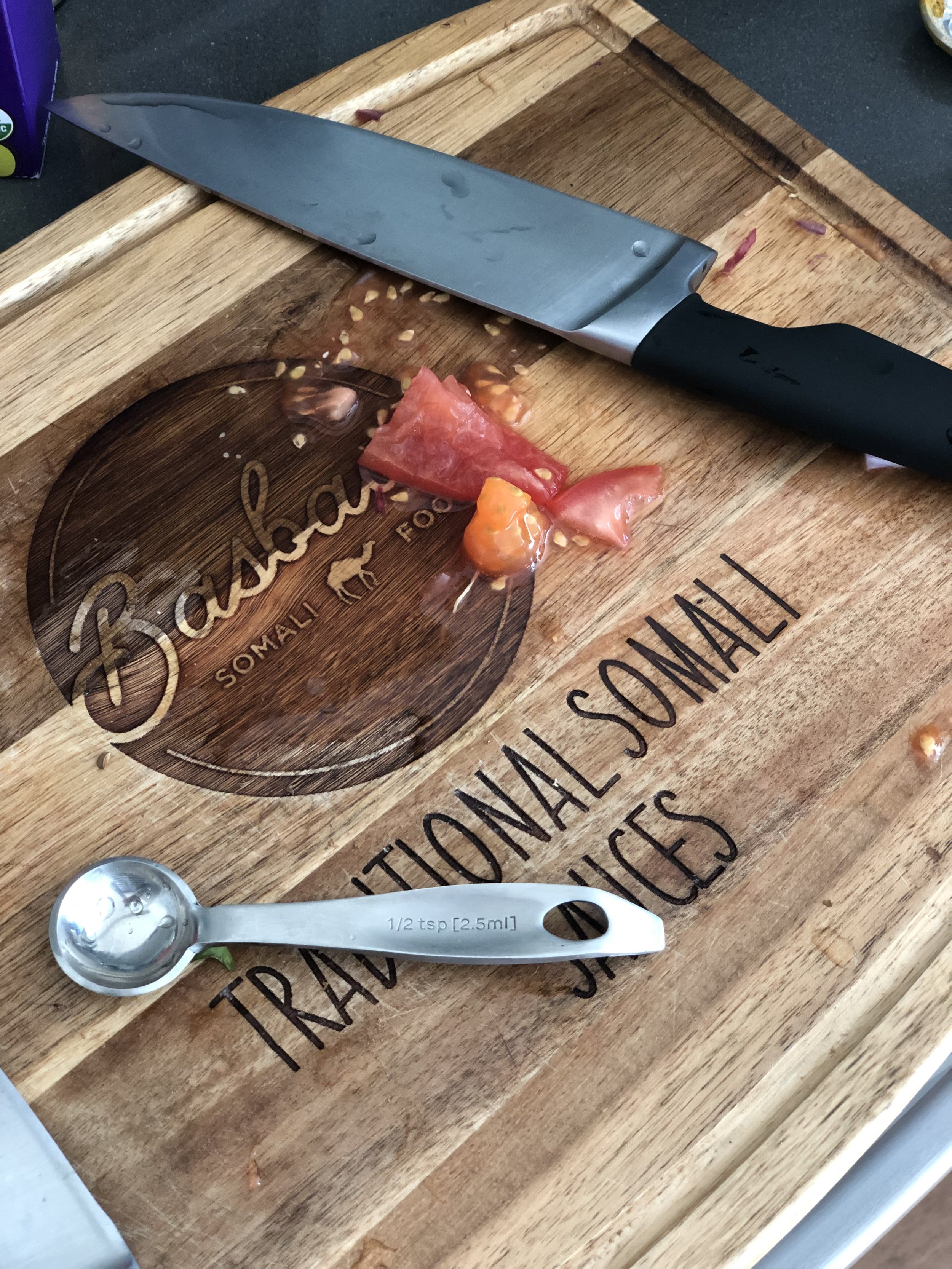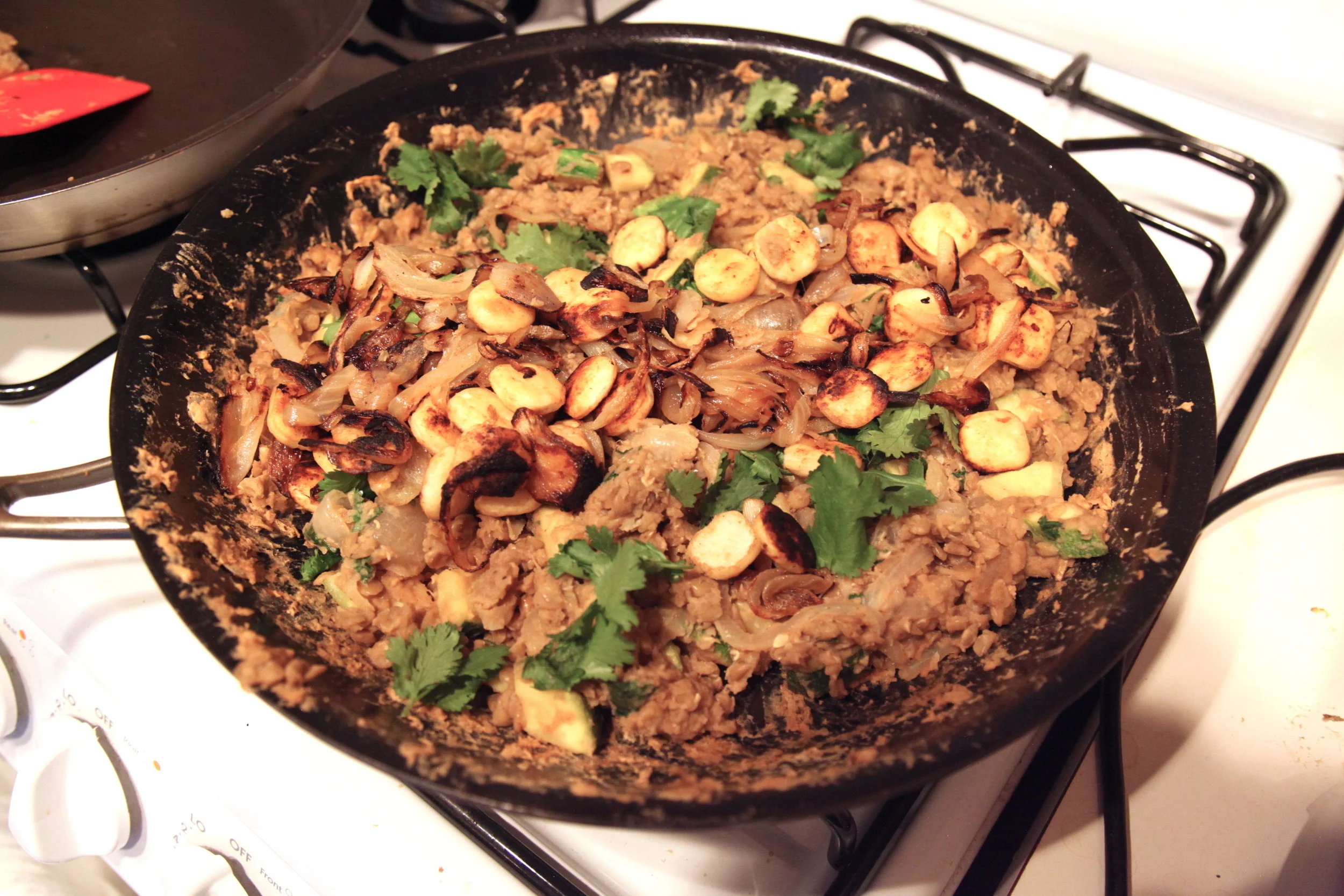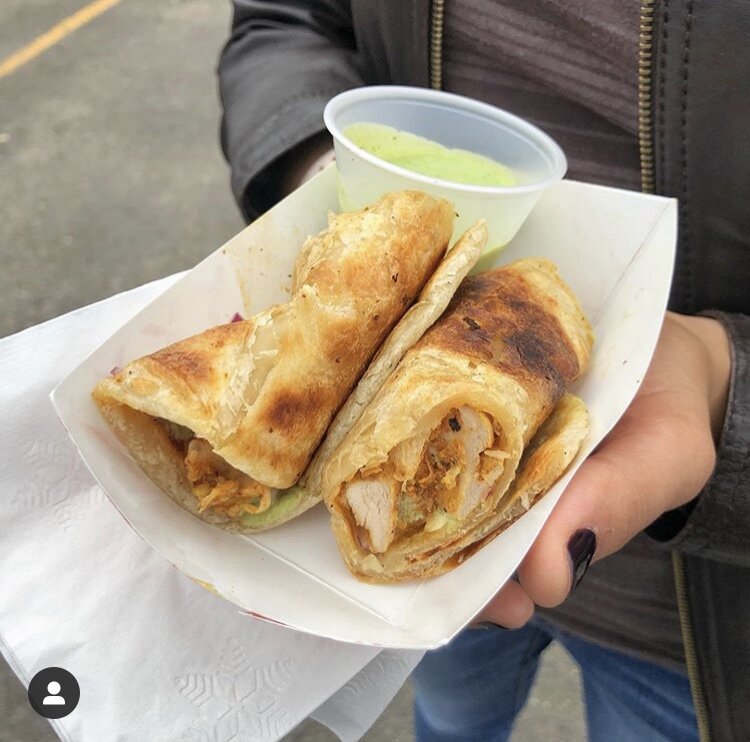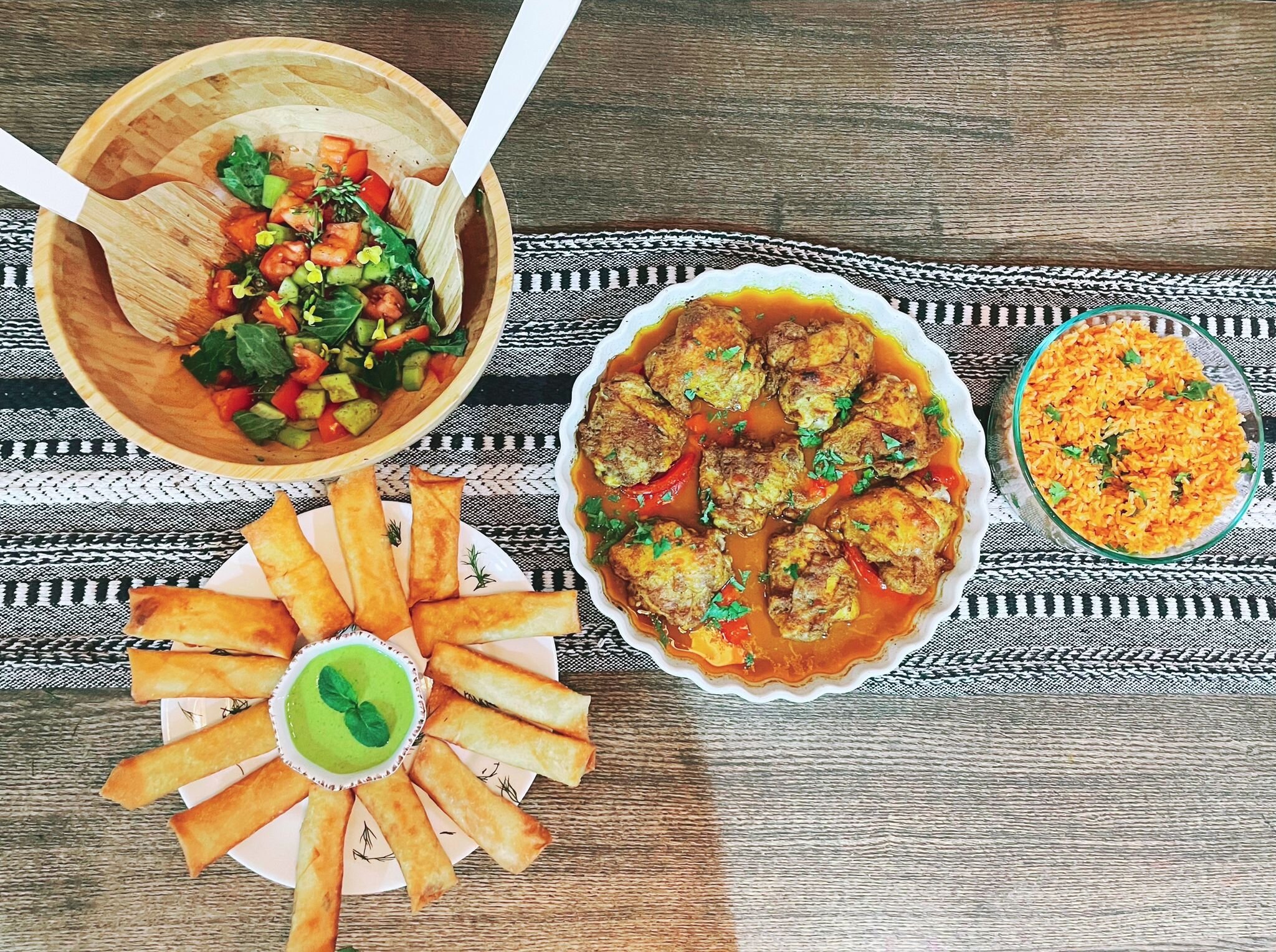Bariis (Somalia)

Hawa grew up in Seattle but her earliest memories are of Somalia, where she was born. “Childhood is very different there. By age four, you’re already your mother’s helper, taking care of the younger kids. You’re expected to already know a lot, in fact, by then, you’re supposed to know the Quran”.
She and her family escaped the civil war and moved to Kenya as refugees when she was a little girl. When Hawa was seven, her mom seized on an opportunity to send her to live with friends in Seattle. Eventually the rest of the family was able to immigrate to Oslo in Norway but it took 15 years for Hawa to reunite with them.
“I didn’t grow up around people who put turmeric on their face every day as a beauty mask. So when I went back to visit my family, I walked into the house and it smelled like spices – a mix of cinnamon, cardamom, cloves, turmeric… That must have been the smell of my childhood and I didn’t know it. But I immediately felt like “home”. American homes don’t have that distinct smell – no two homes have the same smell - but when you’re an immigrant, that’s your story”.
Though she learned to cook as very young girl, growing up in the US, cooking was not required from her. “If I’d had to cook growing up, it probably would have felt like a chore and I might have hated it. Honestly, it wasn't until I felt like I needed to reconnect with my family and my roots that I started to really get into the idea of using food as a way to do so. And now it’s my life! It’s something I do every day as a way to connect with people and I love it, it’s exciting for me to share my culture.”
Hawa is the founder of Basbaas, a Somali hot sauce available in the US. “Basbaas is our “ketchup”, we eat it with everything and every family has its own version. I didn’t create anything new but it’s my take on it. Somali were surprised of its success -I’m very lucky to have seen it as an opportunity. For Americans, it tastes like flavors of the Indian Ocean and it’s a gateway to other cultures. It’s an easy way to jazz up any meal”
Basbaas was born during one of Hawa’s visits to Oslo where she started to spend her summers and the month of Ramadan. It’s there that she got to cook with her family and talk about the past. It drew her closer to people that were like her, something she’d miss growing up in the US. Outside connecting with the family, it was about tasting those flavors again – “this wasn’t food I was tasting every day in Seattle. The families I lived with over there were of different backgrounds so I didn’t grow up with that part of my culture”.
On one of those trips Hawa brought her Vitamix with her. After a career in modeling which brought her to New York, she was ready for something new. “My love language is food, I’m naturally comfortable in the kitchen. At first I thought I would open a juice business but my mom convinced me that ship had sailed”. Hawa’s mom is herself an entrepreneur. “She has a hectic life, always running around, managing all her kids and her business – so even though she is not a great cook herself, she is great at shouting directions in the kitchen. I started making her basbaas recipe, but the way it came out with my blender was much smoother. My mom was amazed at that texture- and that’s really how the idea for the business was born”.
Though Hawa has never been able to go back to Somalia, it’s in her blood. “We are a nation of people comfortable being uncomfortable and very entrepreneurial. And we genuinely believe that paradise is at the feet of our mothers”.
For iftars, which Hawa looks forward to all year, she likes to serve a traditional Somali rice dish, Bariis. “It’s easy for anyone to make and big enough for everyone to share”. On top of that, it’s quick to make, simple and different than any other rice. After cooking, Hawa packed some rice for me to bring and share with my family, along with a jar of Basbaas. And just like she said, it was a perfect match.
Bariis (Somali-style rice)
Ingredients for 4 people
For the rice
¼ cup olive oil
1 red onion, chopped
2 cinnamon sticks-gently crush it with a spoon to get the flavor out before putting it in
2 tomatoes, diced
5-10 whole cloves
1 tablespoon xawaashspice mix (see below)
½ cup raisins
Salt to taste
1 teaspoon of ground coriander
2 cups Basmati rice- rinse and soak it for at least 10mnto get rid of the dusty coat of surface starch
About 4 cups of water
For the Xawaash: (Xawaash is a spice blend - it’s like the garam masala of Somalia)
1 tablespoon ground cumin
1 tablespoon ground coriander
1 teaspoon ground turmeric
1 teaspoons ground cardamom
1 teaspoon black pepper
¼ teaspoon ground cloves
¼ teaspoon of nutmeg
—> combine all together
Directions
1. Sauté the red onion in oil for 5 min, then add the cinnamon sticks and cloves.
2. Add the tomatoes and cook for 5 minutes.
3. Add the xawaash spice blend.
4. Once the tomatoes and xawaash have combined with the onions into a paste, add the rice and stir the grains until they’re coated with the seasoned oil.
5. Toss in the raisins, salt, coriander and a bit of water so the rice starts simmering. Hawa likes to cook bariis in a pot without the lid, adding water and stirring as she goes until the rice is cooked through.
6. Remove cinnamon and cloves before serving et voilà!




